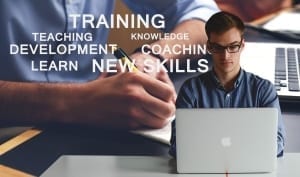What can you do with a software engineering degree?

Software engineering jobs deal with very varied fields of computer science, which also apply to a wide spectrum of fields, such as business, scientific research, medicine, production, logistics, banking, meteorology, law, networks and much more. Here’s what you need to know about the prospects of your software engineering degree.
Software and systems engineering
Systems Engineering specializes in the increase and execution of information techniques. It covers a wide sector of work since all human activity is currently related to information management.
System engineers are trained to hold managerial positions, especially in the administrative sector and are also capable of being leaders of a variety of projects. They can work on the study and develop programs, advice and functional informatics of the organization. They serve as support in the decisions and performance of procedures in the operation.
Software Engineering is a specialty that consists of systems, instruments, and techniques that are used in the development of computer programs.
Software engineering, too, incorporates the preceding analysis of the situation, the draft of the project, the development of the software, the necessary test to verify its correct operation and put the system into operation.
Software Engineering is the engineering specialty that conceives and maintains software applications applying techniques and tests of computer science, project management, and other fields.
Systems Engineering is the engineering specialty that is based on the application of the principles of computer science, electronics and software studies, for the performance of global computing and correspondence solutions, capable of treating information automatically.
With the above, we conclude that both careers have points in common and it could even be said that they complement each other, and it is possible to resort to both at the time a project is developed.
Basic roles of Software Engineering.
The software engineer takes care of all the project management so that it can evolve in a certain period and with the resources planned for the project.
Software Engineers must:
- Adopt a systematic approach to carrying out your work.
- Use the appropriate instruments and technology to find the solution to the problem, according to the limitations of development and the resources available.
Software Engineering Features
It is an engineering specialty whose main objective is the cost-effective development of reliable software systems that work efficiently and includes all aspects of software production.
The software presents 3 elements that characterize it:
The programs and/or algorithms.
The data structures
Papers.
There are 2 types of software derivatives when developed: 1. Generic products and 2. Customized products.
Objectives of software engineering
The main objectives of software engineering are:
- Design computer programs that meet the demands of society. Software Engineering
- Objectives of Software Engineering
- Lead and couple the development of complicated schedules.
- Act in all phases of the life cycle of a product.
- Compute the costs of a project and evaluate development times.
- Track costs and deadlines.
- Lead software development work teams.
- Structuring the preparation of evidence that proves the perfect functioning of the programs and that adapt to the analysis and design requirements.
- Design, build and manage databases.
- Lead and guide programmers during application development.
- Include quality processes in the systems, calculating metrics and indicators and checking the quality of the software produced.
- Structure and inspect the work of your team of maintenance technicians and systems and network engineers.
Stages of software engineering
The software engineer’s work consists of seven stages. Each of them briefly defined below:
Analysis stage:
It is the procedure to investigate a problem to which you want to find the solution. The Problem to be solved or the program to be invented is clearly defined, identifying the main elements that will make up the product.
Design Stage:
It is the procedure that uses the information accumulated in the analysis stage of the product design. The main task of the design stage is to create a model or the precise characteristics for the product or System Components.
Development stage:
The software development stage consists of the use of the designs created during the design stage to elaborate on the elements to be used in the system.
Test Stage or Test Verification
It consists of guaranteeing that the individual elements that make up the system or product have the characteristics required in the specification created during the design stage.
Implementation or Delivery Stage Implementation:
It consists of the distribution of the product and makes it reach the customer.
Maintenance Stage:
It consists of applying the appropriate solutions to any product problem and re-releasing the improved product, giving it a new version.
Final stage EOL (End-of-Life)
It consists of executing all the tasks that guarantee that both the clients and the employees have the certainty that the product will no longer be available, so it will no longer be sold.
.
Software engineering tools
Every day that passes, the use of the software is the best alternative to lighten and systematize tasks that are in the performance of the processes.
The evolution of software is no exception; In this case, the instruments have been called CASE (Computer-Aided Software Engineering).
CASE (Computer-Aided Software Engineering)
They incorporate a set of programs that allow improving the quality of a product, constantly offering support to analysts, software engineers, and developers.
CASE is the adaptation of processes and technology that perform programs, processes and their corresponding documentation.
Here we refer to three tools that contribute to the management of the requirements to the identity, remuneration and monitoring procedures, including interface, verification, rectification, and control of each requirement, during the project life cycle.
Changes/updates of requirements must be managed to ensure that product quality is not altered.
Recently, the tools for managing software requirements were conditioned only by text editors, who performed it making it a boring and even confusing task. Currently, we have many options.
CONTROL
The software engineering process supports tools in small businesses. It was created due to the development of the market and the creation of large and small companies, which required a tool for the evolution of their projects.
It offers important procedures such as Requirements management, use case management, trial and error case management, release planning, implementation management, dependency control between implementations, traceability matrix and traceability requirements. Here are the various fields you can choose after studying software engineering.
Conclusion
At present, there are many demands of highly prepared engineers, such as the requirements of large companies such as Google, Facebook, Twitter among others, which also compete with each other, to obtain graduates from universities that present the best possibilities.

 We are told throughout our lives that education is important. We are told that it is something we need to take seriously, and something we need to think carefully about. It is a privilege to be able to even have an education, so we should be glad about the one we have. Of course, at a young age when we have to go to school every day, we might not necessarily agree with all of this. But the older we get, the more we realize that it’s completely true. So just what is it that education can give us that makes it so important? Read on to discover just a few examples.
We are told throughout our lives that education is important. We are told that it is something we need to take seriously, and something we need to think carefully about. It is a privilege to be able to even have an education, so we should be glad about the one we have. Of course, at a young age when we have to go to school every day, we might not necessarily agree with all of this. But the older we get, the more we realize that it’s completely true. So just what is it that education can give us that makes it so important? Read on to discover just a few examples.

